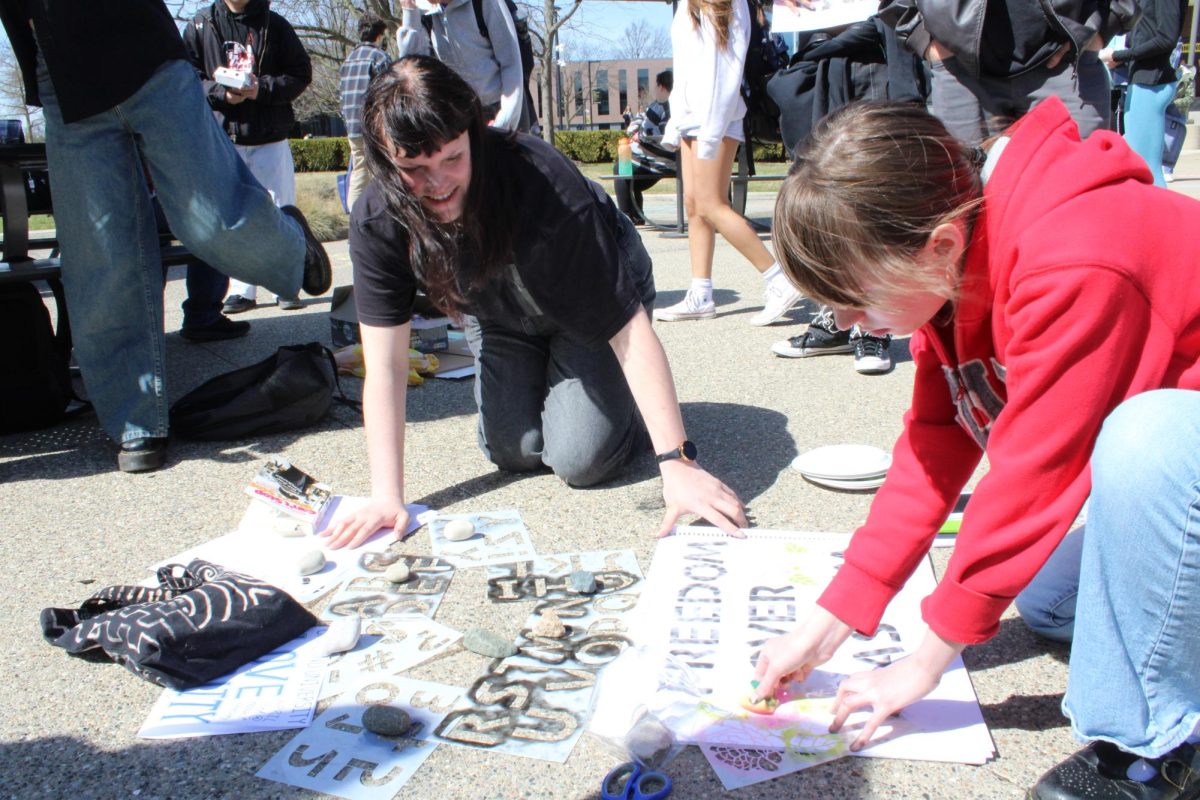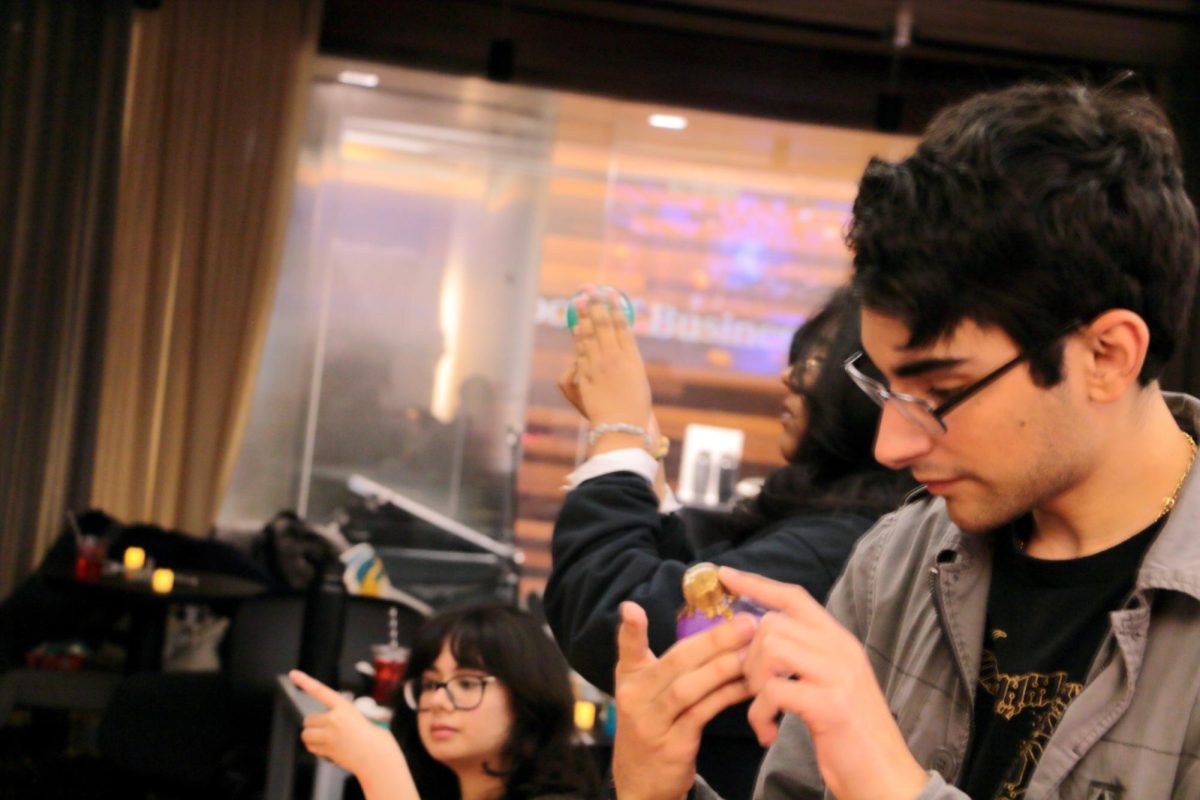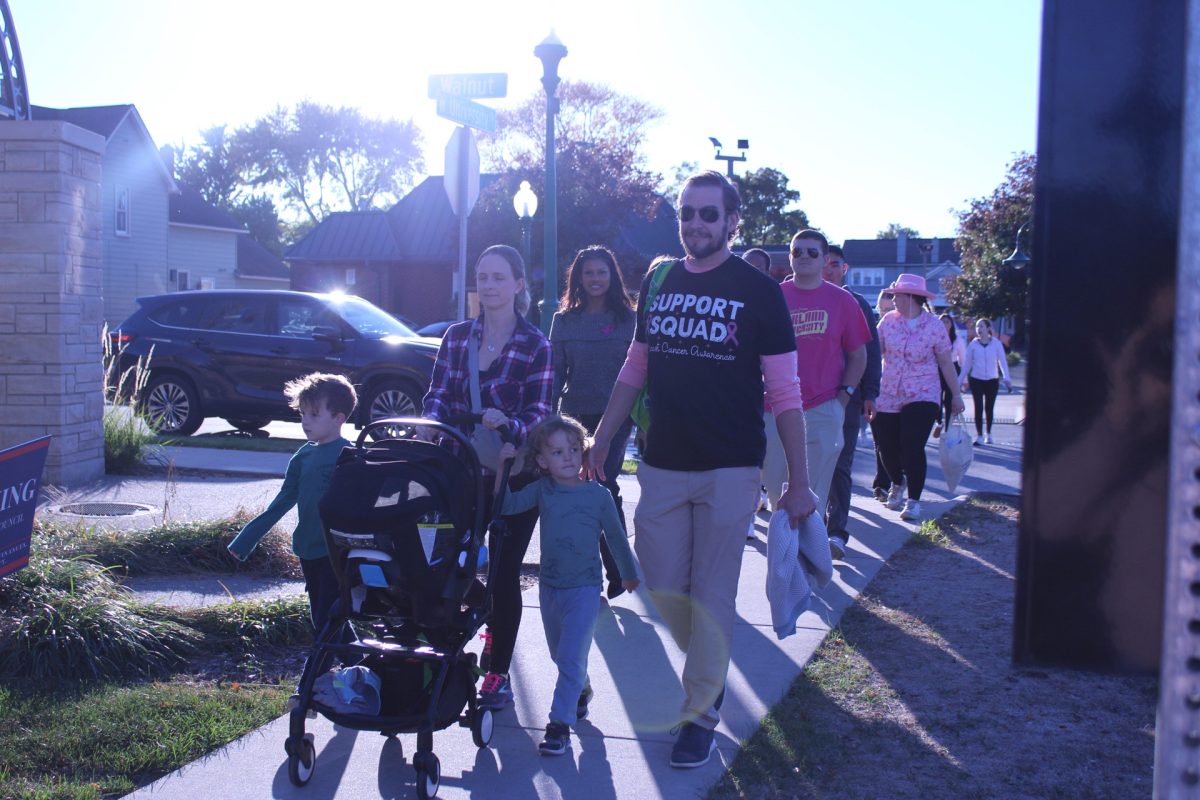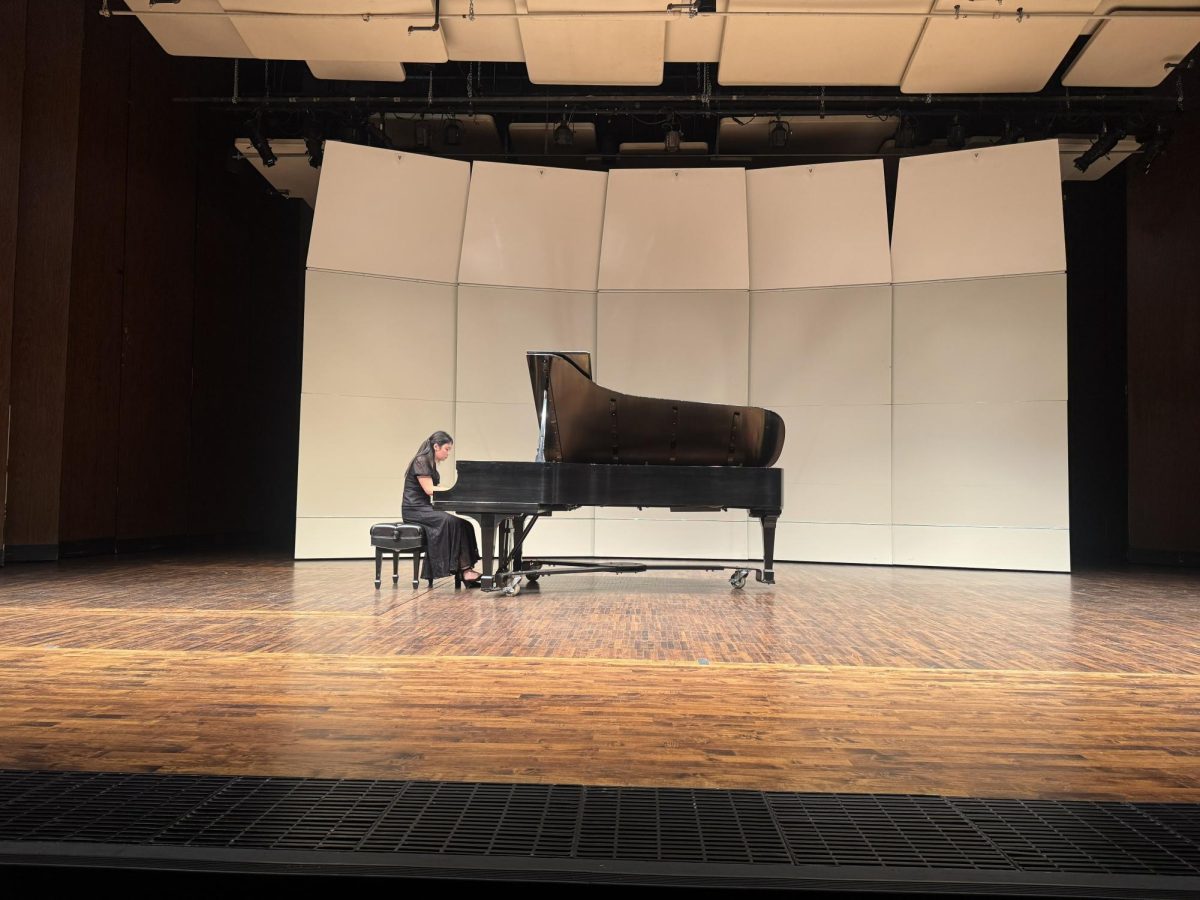With crayons on the floor, paint on signs and student voices on the speaker, Oakland University community members championed love and unity under Elliott Tower at noon on April 3.
“[At] Oakland University we can help solve our problems structurally,” Jamie, an OU student who wished his last name to remain anonymous, said. “We can by supporting programs, supporting DEI — whatever we want to call it, I would call it a supportive community if DEI hurts your feelings — and in that, just know your neighbors, know the people in your community, don’t isolate yourself.”
With upbeat music, a sign making station and colored chalk, students gathered to discuss the importance of diversity, equity and inclusion (DEI), freedom of speech and community building. This comes at a critical time in higher education with renowned institutions like University of Michigan taking actions against student activists and dismantling DEI programs.
“We can either be a school that becomes closer to MSU [Michigan State University] or becomes more like UMich [University of Michigan],” Jamie said. “You might hear that and go, ‘Oh no, we don’t want to go the MSU way, UMich is a prestigious university of Varsity and Ivy, they’re worth inspiring to.’ But in light of recent events, I think we need to chart our own path and make ourselves stand out in a way that is different.”
The university’s Strategic Response Team has been working on determining what DEI looks like at OU. On April 1, OU President Ora Hirsch Pescovitz sent out a letter reassuring the campus community of advances in the university’s compliance with the executive order.
“I have asked our Strategic Response Team to conduct a careful, comprehensive review of university programs, policies, scholarships, and materials,” Pescovitz said. “Our goal is to ensure full legal compliance while remaining true to our principles. Where revisions are needed, they are being made quickly and thoughtfully. This is how Oakland leads—with integrity, readiness, and resolve.”
Jamie called for the campus community to keep the Board of Trustees accountable after they made a verbal commitment to DEI in the last BOT meeting.
“It’s our job to kind of push them on that — it can’t just be words,” Jamie said. “We are a campus that supports students and supports safety and supports ourselves; that protects one another, that protects free speech; one that does not allow hate speech on campus, and one that allows us as students to be happy and healthy.”
At a time of national mobilizations against the current administration’s intervention in academic programs, the health sector and veteran services — to name a few — Professor Andrea Knutson reflected on the power of words.
“Peace is only possible if we can build a society with values that apply to all of us and that each of us feels are conveyed with words that can anchor our lives,” Knutson said. “Maybe it’s life, liberty and the pursuit of happiness. Maybe it’s diversity, equity and inclusion. I like safety, dignity and peace. Maybe your word is respect, maybe your word is ingenuity or sustainability. Maybe your word is labor or love or living wage … remember these words belong to everyone.”
Unity through inclusion has been a cornerstone of America’s story of freedom, the Professor of American literature and culture explained. Knutson yet problematizes the national value recognizing that many people like Native Americans are still left out of the picture to this day — calling for students to be cautious and intentional in their efforts to bring about equity.
Councilperson for District 3, Mikal Goodman, reminded students that activism doesn’t stop at protests, demonstrations and speeches.
“It is equally as important to make sure that we are doing our part, and that does not mean that everyone has to be out in the streets,” Goodman said. “Sometimes that means doing mutual things. Sometimes that means cooking for people in your community who are not able to do forever so for themselves. Sometimes that means keeping an eye out in your community.”






